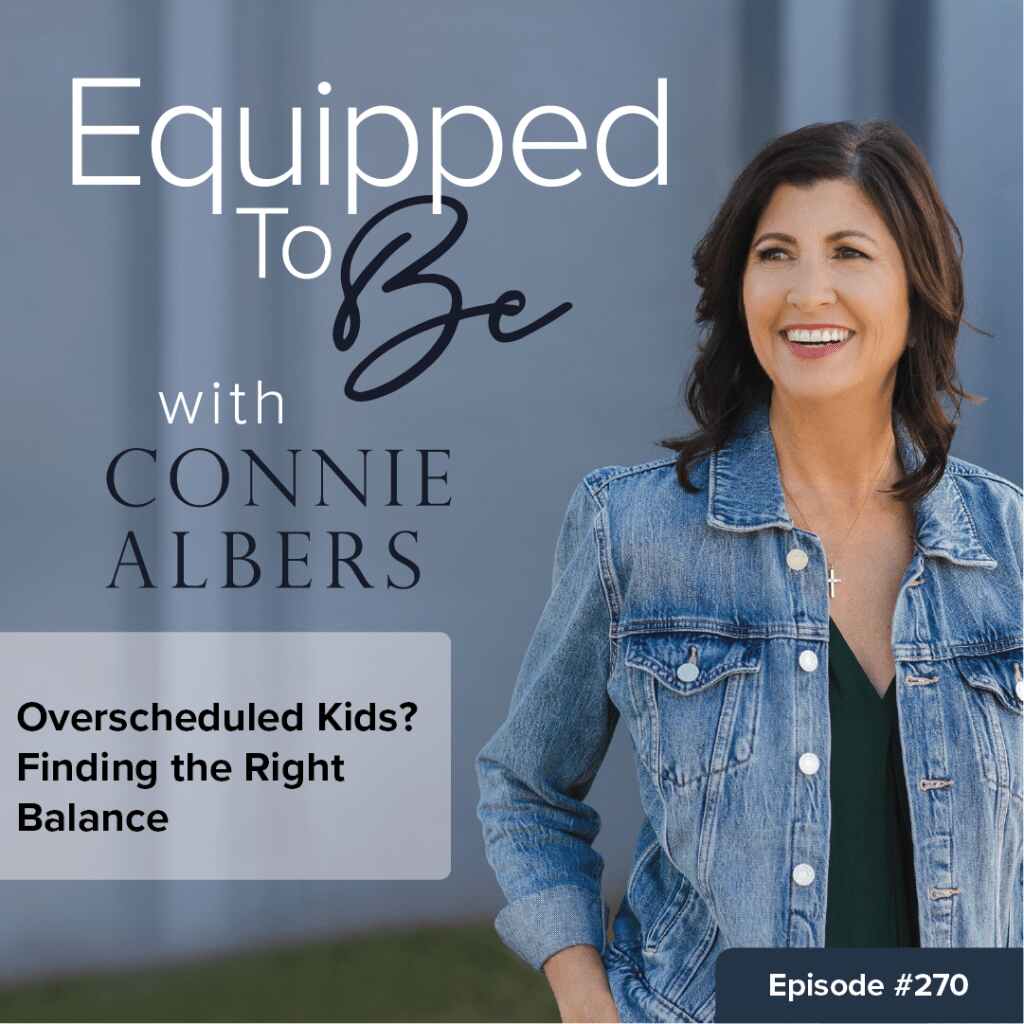Overscheduled Kids? How to Balance Extracurricular Activities and Free Play is a question more parents are asking as childhood calendars fill up faster than ever.
In the race to provide every opportunity, from music lessons to competitive sports, we often overlook the quiet warning signs: tired eyes, anxious hearts, and lost joy. While enrichment activities can be wonderful, too much of a good thing can crowd out the space kids need to rest, play, and simply be.

In this episode, I’ll explain how to spot the signs of overscheduling, why free play matters more than we think, and practical ways to create a healthier, happier rhythm for your family.
The Modern Childhood Calendar: Full or Fulfilling?
It starts the same way for so many of us: you’re looking at your planner, thumbing through text reminders—piano at 3:30, soccer at 4:15, math tutor by 6—and you catch your child’s eyes looking at you. They look exhausted, not exhilarated. Why? Because the race to give our kids every opportunity can quietly squeeze out the very childhood we’re trying to enrich.
Pediatric experts have been sounding the alarm. A 2024 review found that children who log extra activities “hour after hour” show higher rates of anxiety, depression, and even anger than their less-scheduled peers solutionhealth.org. Dr. Deb Lonzer, a Cleveland Clinic pediatrician, puts it plainly: “Kids whose time is overly organized don’t have time to be kids, and their family doesn’t have time to be a family”
Translation? A bursting calendar isn’t automatically a fulfilling one; the magic is in the margin.
Signs Your Child Might Be Overscheduled
- Mood swings & irritability – abrupt tears after practice or a hair-trigger temper at home.
- Sleep troubles – trouble falling asleep or waking up tired despite a full night.
- Loss of joy – once-beloved sports or clubs feel like chores.
- Foggy focus – slipping grades or blank stares during homework time.
- Physical complaints – frequent headaches or stomachaches with no apparent medical cause.
Mary Catherine, a pediatric nurse practitioner known as @the.mom.np, warns that children who rarely get downtime “may develop unexplained physical symptoms and rising anxiety,” nypost.com. When these red flags cluster, your child’s calendar—and nervous system—may be begging for breathing room.
How Much Is Too Much?
Let’s take a realistic Look at 2–3 Activities. Whether two or three activities are “too many” depends on:
| Guiding Questions for Parents | Why It Matters |
|---|---|
| How much homework does my child average each night? | Academic load + rehearsals may crowd out sleep. |
| Does my child’s personality recharge alone or with people? | Introverts need more unscripted solitude. |
| Is at least one afternoon per week completely free? | Brains and bodies recover in empty space. |
| Does my child ask for this activity or merely tolerate it? | Genuine interest fuels resilience; obligation fuels burnout. |
| Are meals, faith gatherings, and family nights suffering? | When core relationships slip, the schedule needs trimming. |
Keep evaluating each season: a heavier fall sports schedule might mean a lighter winter with more cozy family nights and outdoor play.
Why Free Play Matters More Than We Think
Play isn’t a frivolous break from “real” learning; it is real learning. The American Academy of Pediatrics describes play as “a powerful, brain-building activity that buffers toxic stress and builds executive function,” according to publications.aap.org. Harvard’s Center on the Developing Child notes that unstructured games enhance working memory, creativity, and self-control, skills that children will rely on throughout their lives. gse.harvard.edu.
Picture a backyard stick-sword turned spaceship: in ten minutes, your child has solved problems, negotiated rules with siblings, managed frustration, and, bonus, had fun. No adult-crafted curriculum required.
Building a Balanced Schedule
- The “One-At-A-Time” Rule: Pediatric nurse practitioner Mary Catherine limits her own kids to one extracurricular per season and sees calmer, happier children because of it nypost.com. Try choosing a single focus each term (e.g., spring soccer, summer swim).
- Time-Block Rest: Put “nothing” on the calendar. Literally block out unscheduled afternoons so chores, Lego builds, or cloud-watching can unfold without hurry.
- Family Check-Ins: Over weekend breakfast, ask: “Which activity lit you up this week? Which one drained you?” Let kids’ answers guide next season’s sign-ups.
- Protect Evenings: Aim for four shared meals at home each week. Research shows that family dinners are correlated with better mental health and academic performance; they’re worth protecting.
- Model the Margin: When parents book every minute of their own lives, children copy the cadence. Show them how to say no—and how to savor a quiet walk or a board game.
Final Thought on Overscheduling Kids
Your child’s schedule should feel like well-paced music, moments of lively crescendo, followed by calm, restorative rests. When you strike that rhythm, you give them more than resume fodder; you give them space to discover who they are. And that, more than any trophy or recital, is the opportunity that matters most.
Sponsors, Related Shows, and Links
The following may contain affiliate links:
- Parenting Beyond the Rules: Raising Teens with Confidence and Joy by Connie Albers
Related Episodes
How to Connect with Connie
- Follow Connie Albers on Instagram | Facebook |X | Pinterest
- Learn more about Connie’s book, Parenting Beyond the Rules.
- Learn more about the Equipped To Be podcast
Subscribe to Equipped To Be
If you find this podcast helpful, please consider subscribing and leaving a review. It’s a great way to support the show and only takes a few seconds.


